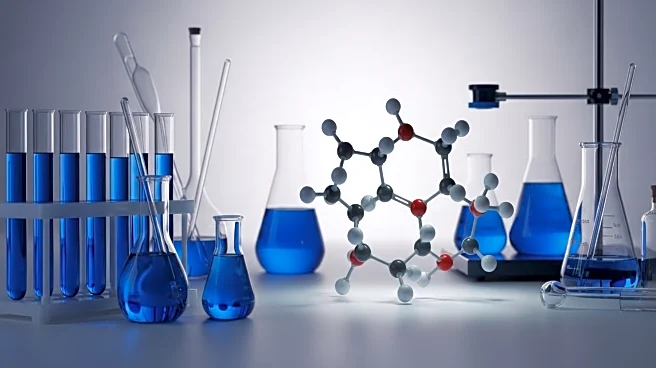What's Happening?
Researchers at UBC Okanagan have made a significant breakthrough in understanding how plants produce mitraphylline, a rare natural substance with potential anti-cancer properties. Mitraphylline belongs to a group of plant-derived molecules known as spirooxindole alkaloids, which are noted for their anti-tumor and anti-inflammatory effects. The research team, led by Dr. Thu-Thuy Dang, identified the first plant enzyme capable of forming the distinctive spiro shape of these molecules. Doctoral student Tuan-Anh Nguyen further discovered two enzymes that collaborate to determine the molecule's 3D arrangement and complete the final twist to form mitraphylline. This discovery provides a new method to replicate the natural process of producing these complex molecules, which are typically found in trace amounts in tropical trees like Mitragyna and Uncaria.
Why It's Important?
The discovery of the enzymes responsible for assembling and shaping mitraphylline is crucial for the pharmaceutical industry, as it offers a sustainable and efficient method to produce compounds with significant therapeutic potential. Natural compounds like mitraphylline are often difficult and expensive to synthesize due to their limited availability in nature. By establishing a framework for producing these compounds more efficiently, researchers can potentially lower production costs and increase accessibility to anti-cancer treatments. This advancement highlights the importance of green chemistry approaches in drug development, which can lead to more environmentally friendly and cost-effective solutions in the pharmaceutical sector.
What's Next?
The research team plans to adapt the molecular tools discovered to create a broader range of therapeutic compounds. This involves further collaboration between UBC Okanagan and other institutions, such as the University of Florida, to explore the potential of these enzymes in synthesizing various spirooxindole alkaloids. The ongoing support from Canadian and U.S. research funding bodies will facilitate the development of new pharmaceutical applications, potentially leading to innovative treatments for cancer and other diseases. The researchers aim to leverage their findings to expand the scope of natural product biotechnology and enhance the global reach of their solutions.
Beyond the Headlines
This discovery not only advances scientific understanding of plant chemistry but also underscores the role of interdisciplinary collaboration in achieving significant breakthroughs. The partnership between UBC Okanagan and the University of Florida exemplifies how combining expertise from different fields can lead to innovative solutions with global impact. Additionally, the research highlights the potential of plants as natural chemists, capable of producing complex molecules that can be harnessed for therapeutic purposes. This could pave the way for more sustainable drug development practices, reducing reliance on synthetic chemical processes.









